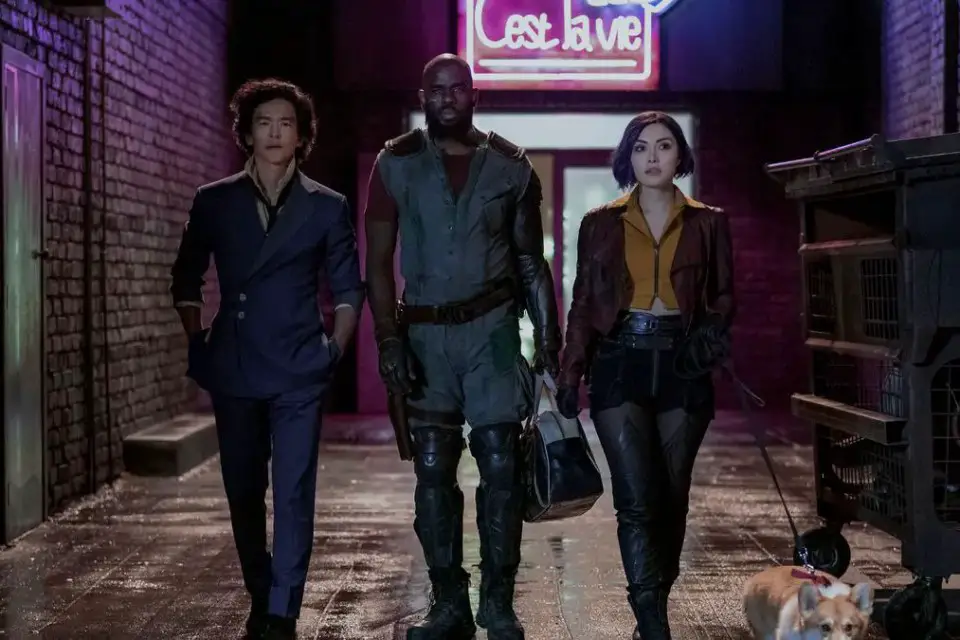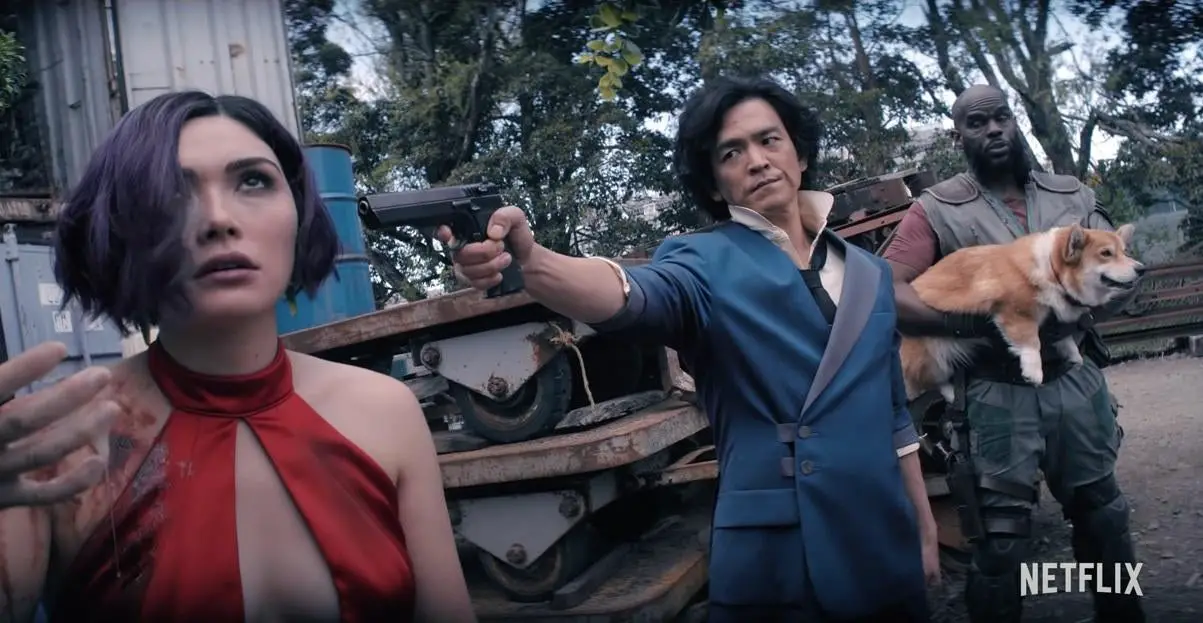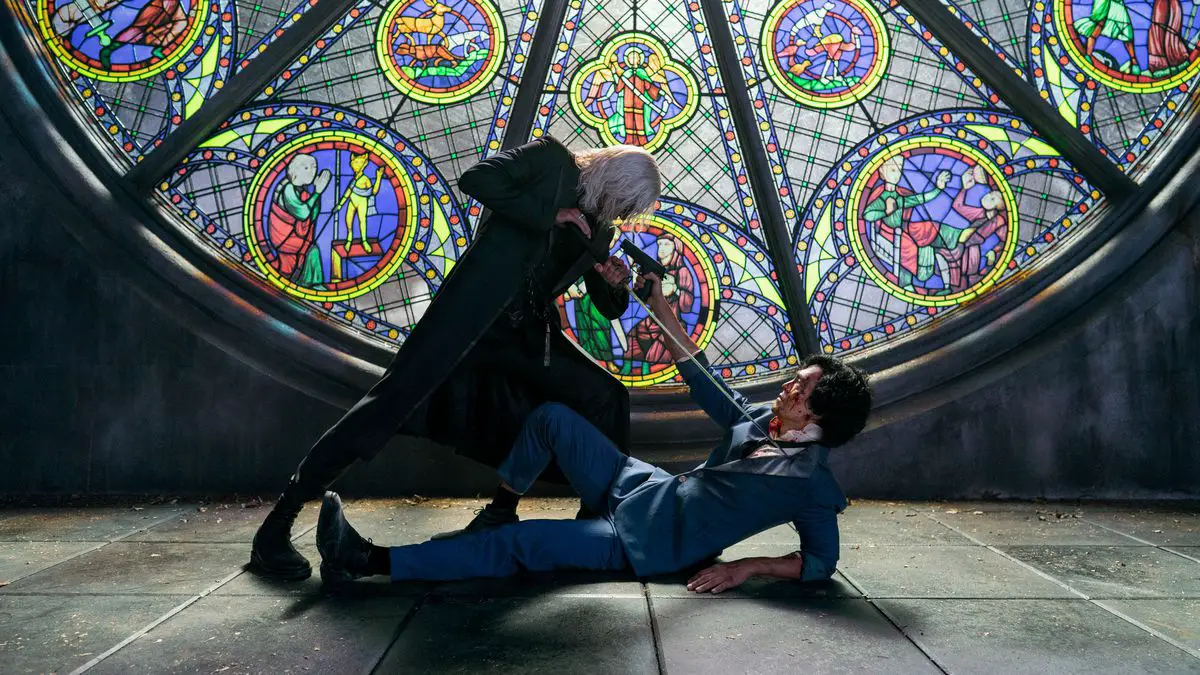‘Cowboy Bebop’ Season 1 Review

Cowboy Bebop changed the western perception of anime forever. What seemed like a production destined for failure continued to find its way to the light. And eventually, it gave us one of the greatest animes ever. Spanning 26 episodes and one film, Cowboy Bebop gave us a beautiful story of one bounty hunter’s journey to escape his past and maybe get a fistful of woo-longs on the way. Spike and the rest of the crew of the Bebop are forever synonymous with high-quality anime and have remained relatively untouched since the release of the Cowboy Bebop movie in 2002.
So, when Netflix announced that it began work on a live-action remake of the series, people were rightfully concerned. The 2017 Death Note adaptation had left a sour taste in the audience’s mouth. Moreover, anime isn’t exactly a medium that best translates to live-action. Does the stylistic Cowboy Bebop remake follow in the same vein as Netflix’s other adaptations? Well, sort of.
Showrunner André Nemec injects the aesthetic of the anime but lacks in quality of story. While the anime tell its story over 23-minute long bursts, Netflix’s Cowboy Bebop goes bigger. The 45 to hour-long episodes result in more story than the anime. Every detail from the original is extrapolated and sometimes given its own backstory. The Bebop crew still maintains their nuanced and layered characters from the anime. However, much of what fans considered rewarding reveals in the anime feel mostly empty in this adaptation.
However, the whole production has its heart in the right place. Particularly the cast of John Cho, Daniella Pineda, and Mustafa Shakir as Spike, Faye, and Jet. Each actor puts their all into their performances. Each one embodies their animated counterpart to perfection. There are new dimensions added to some of them that pay off well, too. One example is Pineda’s Faye, who is a part of a lot more action than in the anime. Her performance really helps to modernize Faye as a character, and the creative risks for this character pay off immensely.
READ: ‘Red Notice’ Review: “Netflix Action Film Hits All The Marks”
John Cho’s Spike Spiegel is somewhat of a mixed bag. Cho brings the smooth physicality and cool demeanor of Spiegel. However, his chemistry with the rest of the crew sometimes goes into negative territory. His sarcasm at times goes to a bit extreme lengths. Mustafa Shakir’s Jet is the most faithful adaptation from anime to live-action. Very little is changed about the character and his expounded upon relationship with Spike is one of the best rewordings the show has provided. Overall, you could do worse than this cast.
The characters of Julia (Elena Satine) and Vicious (Alex Hassell) are the most extreme departures from the anime. In general, Spike’s past with the syndicate and his relationship with Vicious is explained in thorough detail, unlike the ambiguity of the anime. The character of Julia is the weakest link of this adaptation as well. Because she was such a minor character in the anime, her development here feels oddly placed. There are some creative decisions near the end of the season that dramatically change the original story. As said before, there are character beats/moments that pack emotional punches in the anime, because they’re far apart placed in the series. In Netflix’s adaptation, these beats become glossed over, put into exposition leaving them feeling weightless.
While lacking in the story department, Cowboy Bebop makes up for it in the action department. Thanks to colorful sets and characters, the show is aesthetically faithful. Each action scene, especially the first episode’s incredible opening scene, feels fresh and fun. The gunplay, sword fights, and intense fist fighting are all a joy to watch. The action of Cowboy Bebop makes for the most loyal aspect to the original anime.
Well, that and the phenomenal soundtrack by Yoko Kanno. The jazz-infused multi-genre soundtrack gives the show the push it needs to really feel like a part of the Cowboy Bebop canon. The soundtrack also helps to elevate the noir-like storytelling of the series. Overall, the soundtrack is a big plus for the series and helps to show that this adaptation has its heart in the right place, despite not fully living up to its potential.
Filled to the brim with love for what came before, the production design, performances, and soundtrack really push Cowboy Bebop above other mediocre anime adaptations. However, some confusing story decisions and hour-long episodes that try to extrapolate certain story beats from the anime drag this adaptation quite a lot. There are bold moves made in this show, and not all of them pay off. Still, Cowboy Bebop is an inspired effort that still has plenty in it for newcomers and old fans alike to enjoy. You could do worse with anime adaptations. – Ernesto Valenzuela
Rating: 6.5/10
Cowboy Bebop is streaming on Netflix on November 19th.





